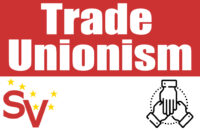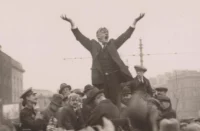The merger of Impact, the Civil, Public and Services Union (CPSU) and the Public Service Executive Union (PSEU) will create a new 80,000-member, largely public-sector union, to be called Fórsa, in 2018.
Towards the end of 2017, 86 per cent of Impact members who voted supported the merger; 76 per cent of CPSU members who voted backed it; and 70 per cent of PSEU members who voted supported it. So it has the clear backing of a majority of voting members.
Fórsa will represent workers throughout the civil service and public service, commercial and non-commercial state-sponsored bodies, community and voluntary organisations, and private companies in aviation, telecommunications, and elsewhere. It will be the second-largest union in the country (after SIPTU) and, according to Impact, will be “the strongest and most influential trade union voice in the public service and semi-state [state-sponsored] sector.”
Impact, the biggest component, argued for this merger on the usual grounds: that it will have more resources and therefore be stronger, with €85 million in assets, including a €50 million dispute fund.
Unions usually merge less for political and industrial reasons than for pragmatism and survival. Research in Britain suggests that the main reasons for mergers are declining or stagnating membership and struggling to organise in new areas. The promise is that cost savings and efficiencies will release funds for new organising initiatives.
Again looking at Britain, this has largely failed; and while unions have secured themselves financially in the short term and have carried out significant internal restructuring (often with loss of jobs for union staff), no major inroads have been made in organising.
Other research also suggests that mergers do nothing for improving the attitude and activism of the membership within the new structure. Rather than inspiring them, it seems that members become even more distant from what they perceive as a more bureaucratically controlled, top-down union that identifies less with workers on the ground than their previous union.
Traditionally, the left has supported and encouraged union mergers as strengthening solidarity and unity and strengthening the hand of workers. However, as research tells us, union mergers are not always perceived as positive by members after the merger and often fail to deliver on their promises.
Connolly, writing in Forward in 1914, said:
Recently I have been complaining in this column and elsewhere of the tendency in the Labour movement to mistake mere concentration upon the industrial field for essentially revolutionary advance. My point was that the amalgamation or federation of unions, unless carried out by men and women with the proper revolutionary spirit, was as likely to create new obstacles in the way of effective warfare, as to make that warfare possible.
It is the old story of adopting the letter but rejecting the spirit. The letter of industrial concentration is now accepted by all trade union officials, but the spirit of working-class solidarity is woefully absent. Each union and each branch of each union desires above all things to show a good balance sheet, and that that might be done every nerve is strained to keep their members at work, and in a condition to pay subscriptions.
The politics and ideology of the new union are far more important than the size of its assets. And nothing in this new union suggests anything different or more progressive than its constituent parts, which hardly inspire revolutionary advance.
In fact, acting as one with a combined membership will surely prevent any opposition to public-sector agreements that smaller unions might try to muster. It may mean that a deal with Fórsa is essentially a public-sector deal; so where will this leave nurses and teachers, who have very real and legitimate grievances against the Government?
And what about organising political opposition from a left viewpoint? This will surely be harder in a more tightly controlled, unified and top-down structure.
Time will tell. One thing is certain: that class struggle within our trade unions remains critical to any general advance for working people.






